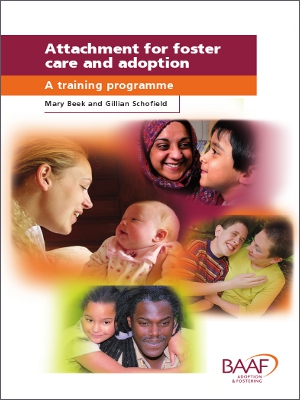
Attachment for foster care and adoption
£35.00
Attachment is at the heart of family life and at the heart of foster care and adoption. Attachment theory and research provide a vital developmental framework for making sense of the behaviour and relationship strengths and difficulties that children bring from their complex backgrounds. It also offers a valuable resource for understanding the kind of caregiving in foster care and adoptive families that can help children feel more trusting, confident, competent and secure.
This training programme will provides workers and carers with a framework both for understanding the thinking and behaviour of the children in care, and for helping children to settle and flourish. It accompanies the handbook and DVD of the same name.
The emphasis throughout is on the positive impact that foster and adoptive parenting can have on even the most traumatised children, and on the moment-by-moment interactions of daily family life as a vehicle through which children can be moved towards security.
This programme is intended for use with foster carers and adopters, and for professionals working alongside them. It helps caregivers to understand attachment and apply it to understanding children’s behaviours and their own parenting styles, as well as to think about ways of further developing their skills.
